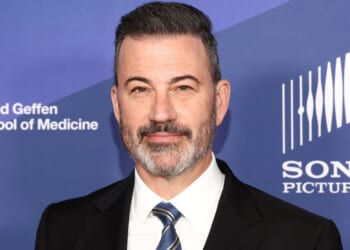Minnesota is home to the largest Somali community in the United States. What do Minnesota’s Somali citizens think of us? We know amazingly little about the community, probably because we are afraid to ask the relevant questions. We know they are mostly Muslim — we can see the hijabs, we are familiar with the many local controversies to which their faith has given rise over the past 35 years — but are they loyal residents or citizens of the United States? In the conflict between the United States and Muslim terrorists, for example, whose side are they on?
Acting United States Attorney Joe Thompson observed at the sentencing of Abdiaziz Farah last week for his food fraud crime spree that Farah treated us as “suckers.” That is certainly true, but it expresses the problem in almost reassuringly familiar terms. I wonder if the problem doesn’t run deeper than that.
For years I was told by federal law enforcement authorities that their biggest concern was represented in an ongoing investigation of foreign support for terrorism. Some Somali Minnesotans supported the terrorist group al-Shabaab with their money. Some supported it with their sons. The investigation consumed the local FBI office for a matter of years and resulted in a string of guilty pleas involving local Somali men supporting al-Shabaab. Investigators believed at least 21 Somali men have left Minnesota to join al-Shabaab. In 2011 two “Minnesota women” were convicted of providing material support to the group after a 10-day trial before Judge Michael Davis.
After al-Shabaab came ISIS. When I sat down with then-Hennepin County Sheriff Rich Stanek for an interview in late 2015, Stanek bristled when I asked him about security issues raised by the Somali community. Why was I doing that? I referred to the House report recognizing Minnesota’s contribution of 26 percent of the American fighters joining ISIS. “I just came from an FBI briefing this morning,” Stanek said. “They told me we’re 20 percent.”
I was referring to the September 2015 report of the House Homeland Security Committee task force on combating terrorist and foreign fighter travel. According to the report, Minnesota led the country in contributing foreign fighters to ISIS. Reviewing the public cases of 58 Americans who had joined or attempted to join ISIS, the task force found that 26 percent of them came from Minnesota. When it comes to exports to ISIS and ISIS wannabes, we were number one.
In 2016 I covered the trial of three Somali Minnesotans charged with material support of ISIS. Their case went to trial before Judge Davis in federal district court on May 9 that year. The jury heard a massive amount of evidence over three weeks and promptly returned guilty verdicts on all of the terror-related charges against the three men on June 3.
Attending the trial and closely following the media coverage, I found that I had to be in court every day taking in the evidence with my own eyes and ears to understand the gravity of the case against the defendants. It was overwhelming, devastating, shocking. One could actually hear what the defendants thought of us: they hated us.
The number of defendants charged in the case grew to 10. By the time of trial, six had pleaded guilty. One had been charged in absentia and was presumed dead in Syria. The guilty pleas derived from the strength of the government’s case.
Defendants Mohamed Farah, Abdirahman Daud and Guled Omar made up part of a larger group of young Somali-American men who sought to leave the U.S. to join the ISIS in Syria. Their friends among those who pleaded guilty included Zacharia Abdurahman, Hamza Ahmed, Adnan Farah (Mohamed Farah’s younger brother), Hanad Musse, Abdirizak Warsame and Abullahi Yusuf. One of their friends — Abdirahman Bashir — turned informant, while others made it to Syria without being detected or charged in the process.
They are all young first- or second-generation Somali Minnesotans who freely took advantage of educational and employment opportunities in the Twin Cities. They all appeared to be talented and resourceful young men. They had social lives centered on local mosques. They supplemented their education with Islamic studies. They were all observant Muslims and they were all ungrateful for the good lives and conventional opportunities afforded them in Minnesota. They wanted to live under the caliphate declared by ISIS. They yearned to wage jihad and to die as Islamic martyrs. They hate the U.S.
The defendants moved into and out of the workforce at will. One worked briefly as a security guard. The informant worked on the tarmac at the Minneapolis-St. Paul International Airport de-icing planes, along with co-conspirator Warsame. When he agreed to turn informant, he asked if he could get his job at the airport back.
At one time, all three defendants also worked at a local UPS facility in a leafy suburb of St. Paul, where they enjoyed watching ISIS videos during their breaks. The sight of beheadings gave them something like pornographic pleasure.
In the spring and fall of 2014, the defendants tried unsuccessfully to leave Minnesota for Syria. Farah, for example, was intercepted at John F. Kennedy International Airport in New York on his way to Syria that November. Farah protested to the FBI agents who stopped him that he was simply on his way to vacation by himself in sunny Sofia, Bulgaria.
In April 2015, defendants’ efforts to make it to ISIS culminated in an apparent opportunity to travel from Minneapolis to Syria through Mexico with fake passports to be secured in San Diego. By this time, however, Bashir had appeared before the grand jury investigating the case with the assistance of the FBI and Assistant U.S. Attorney Andrew Winter. Starting in December 2014 or January 2015, Bashir turned informant and worked covertly with the FBI to record his friends. With the assistance of the FBI, Bashir ultimately presented the defendants with the apparent opportunity to fulfill their hearts’ desire with the fake passport scheme.
The heart of the case brought by the government against the defendants was conspiracy: conspiracy to provide material support to a foreign terrorist organization (by joining ISIS) and conspiracy to commit murder overseas (by fighting for ISIS). To support the charges, prosecutors called Yusuf, Warsame and Bashir to testify to the conspiracy from the inside.
Bashir’s recordings formed the heart of the government’s case. In hours of recordings, the defendants expressed their desire to join ISIS, their regret over the failure of their previous efforts to make it out of the United States, their commitment to wage jihad against nonbelievers, and their ardent wish to die as martyrs. They talked about their communications with their friends who had made it to ISIS in Syria. They thrilled to the videos of ISIS butchery in the name of Allah. They expressed their contempt for the United States.
Defendants raised a defense of entrapment, but the defense was ludicrous. The recordings proved beyond a reasonable doubt that the defendants burned to fight for ISIS and that they did everything they could to make it happen before Bashir ever started working with the FBI.
Every Thursday during trial, by the way, local leftists gathered outside the courthouse to protest the charges. They flogged the defendants’ alleged entrapment. One of them was a former high school student of mine who attended the trial to support defendants. Judge Davis ultimately threw her out of the courthouse for violating one of the rules he had implemented to maintain order and security during trial.
It appears that efforts to discover a “recruiter” who had attracted Somali Minnesotans to ISIS had proved unavailing. Growing up Muslim, receiving religious education and attending local mosques — the Al-Farooq Youth and Family Center in Bloomington was mentioned frequently — the defendants needed little more than the videos supplied by ISIS to recruit them.
In his closing argument, one defense attorney observed that his client may have gotten into a situation over his head. Contrary to the impression I went in with, the same thought had occurred to me during the trial in exactly those words, although I thought that we were in further over our heads than they are, and nothing since then has disabused me of the notion.
















